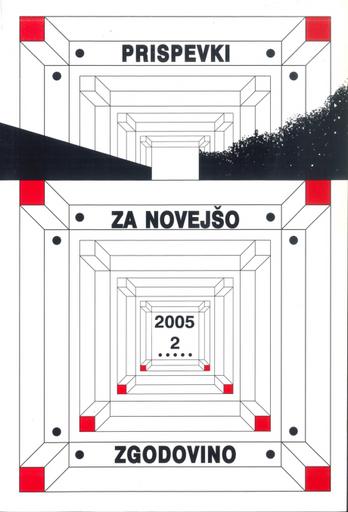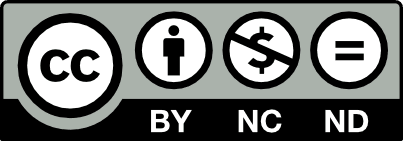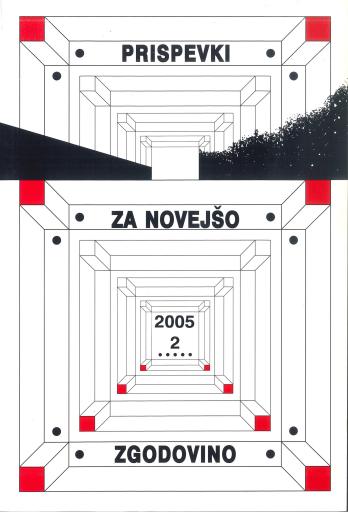
/
Periodicals
/
Prispevki za novejšo zgodovino
Fuel Supply in Ljubljana During the Second World War

Author(s):Mojca Šorn
Co-author(s):Zdenko Čepič (odg. ur.)
Leto:2005
Publisher(s):Inštitut za novejšo zgodovino, Ljubljana
Language(s):slovenščina
Type(s) of material:text
Keywords:2. svetovna vojna, Ljubljana, gospodarstvo, preskrba, kurjava, Second World War, Ljubljana, economy, supply, fuel
Rights:

This work by Mojca Šorn is licensed under Creative Commons Attribution-NonCommercial-NoDerivs 4.0 International
Files (1)

Name:prispevki_za_novejso_zgodovino_2005_2.pdf
Size:73.85MB
Format:application/pdf
Permanent link:https://hdl.handle.net/11686/file25923
Description
After Italy occupied Ljubljana in April 1941, the fuel supply became limited, resulting in
tin increased demand and price rise. This was not the only problem. During the war, due to
worsening transport conditions and an ever growing need for coal by the railways, most of
the coal transported to Ljubljana was intended for industry. Households were forced to use
mainly firewood for their needs. Towards the end of the war firewood became a very scarce
commodity in depots, hue! vouchers became practically useless. The citizens of Ljubljana
had to fend for themselves as best they could.
Metadata (12)
- identifierhttps://hdl.handle.net/11686/1440
- title
- Preskrba Ljubljane s kurivom v času druge svetovne vojne
- Fuel Supply in Ljubljana During the Second World War
- creator
- Mojca Šorn
- contributor
- Zdenko Čepič (odg. ur.)
- subject
- 2. svetovna vojna
- Ljubljana
- gospodarstvo
- preskrba
- kurjava
- Second World War
- Ljubljana
- economy
- supply
- fuel
- description
- After Italy occupied Ljubljana in April 1941, the fuel supply became limited, resulting in tin increased demand and price rise. This was not the only problem. During the war, due to worsening transport conditions and an ever growing need for coal by the railways, most of the coal transported to Ljubljana was intended for industry. Households were forced to use mainly firewood for their needs. Towards the end of the war firewood became a very scarce commodity in depots, hue! vouchers became practically useless. The citizens of Ljubljana had to fend for themselves as best they could.
- Po okupaciji je bil dovoz kuriva v Ljubljano omejen, kar je spodbudilo povpraševanje, hkrati pa tudi rast cen. To ¡pa ni bil edini problem. Zaradi čedalje bolj oteženih prometnih razmer in povečane potrebe železnice po premogu so v času vojne v Ljubljano v glavnem dovajali premog, namenjen le za industrijske obrate. Gospodinjstva so morala za svoje potrebe uporabljati predvsem drva. Teh je proti koncu vojne v skladiščih ostalo nezavidljivo malo. Nakaznice za kurivo so postale praktično nične. Ljubljančani so si po najboljših močeh pomagali sami.
- publisher
- Inštitut za novejšo zgodovino
- date
- 2005
- type
- besedilo
- language
- Slovenščina
- isPartOf
- rights
- license: ccByNcNd
Citirano v (2)
| Tipologija | Avtor(ji) | Naslov | Kraj | Založba | Leto |
|---|---|---|---|---|---|
| 2.01 Znanstvena monografija | Lorenčič, Aleksander ; Prinčič, Jože | Slovenska industrija od nastanka do danes | Ljubljana | Inštitut za novejšo zgodovino | 2018 |
| 2.01 Znanstvena monografija | Himmelreich, Bojan | Pike, špekulanti in Trumanova jajca : preskrba prebivalstva Slovenije z blagom široke potrošnje v letih 1945-1953 | Zgodovinski arhiv Celje | 2008 |
Seznam literature v delu (3)
| Stran | Avtor | Naslov | Vir | Kraj | Založba | Leto |
|---|---|---|---|---|---|---|
| 76 | Weber, Tomaž | 150 zgodb Ljubljančana : (1910-2002) | Ljubljana | Samozal. | 2004 | |
| 77 | Ferenc, Tone | Fašisti brez krinke : dokumenti 1941-1942 | Maribor | Obzorja | 1987 | |
| 81 | Kovačič, Lojze | Prišleki : pripoved | Ljubljana | Slovenska matica | 1984 |